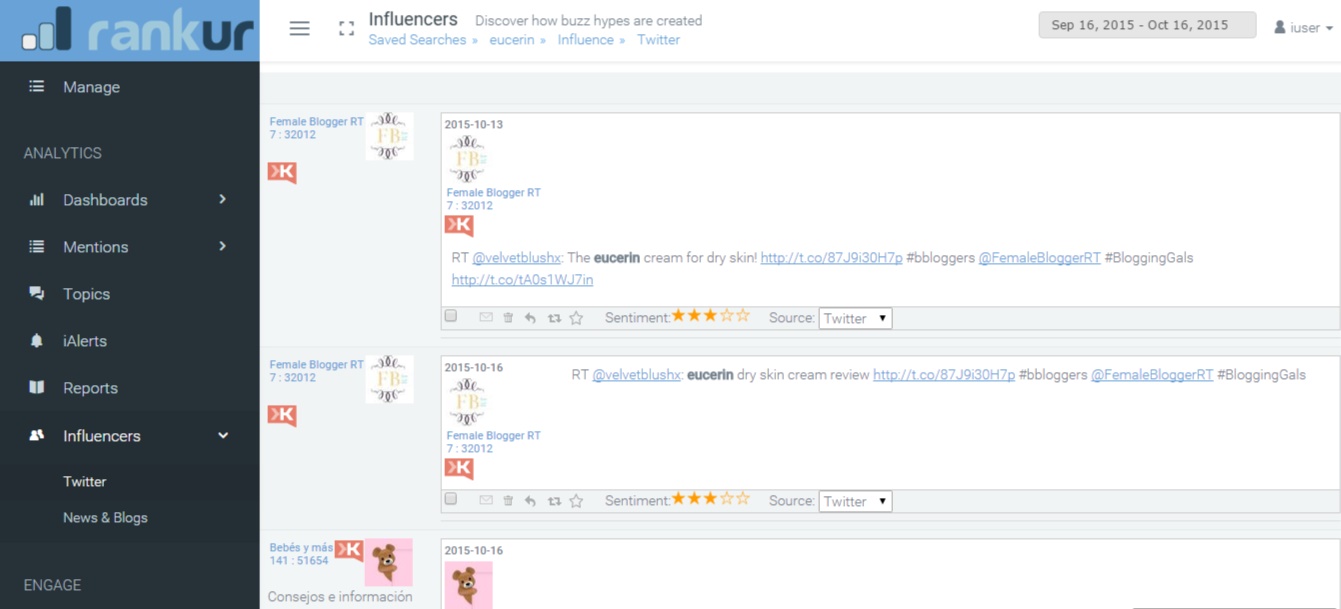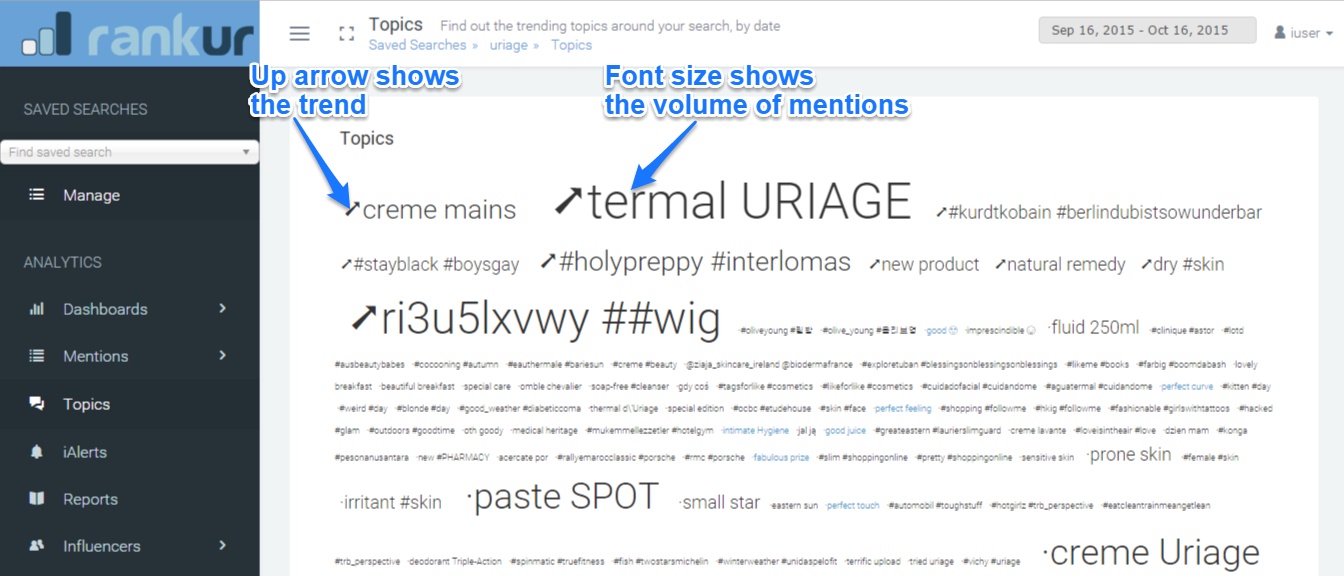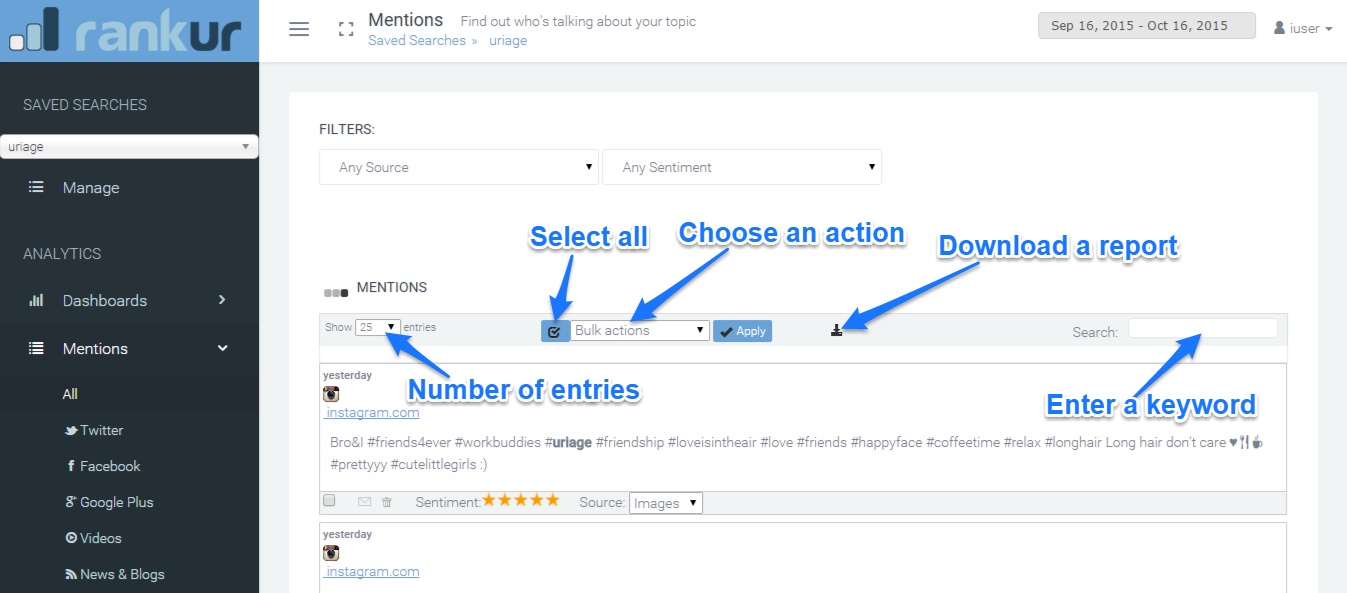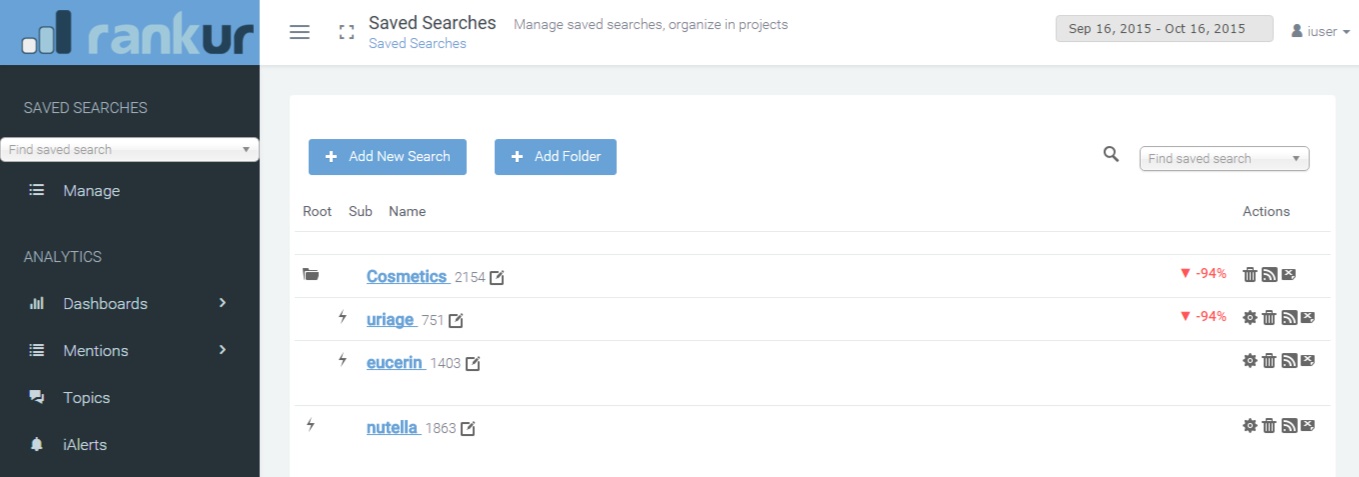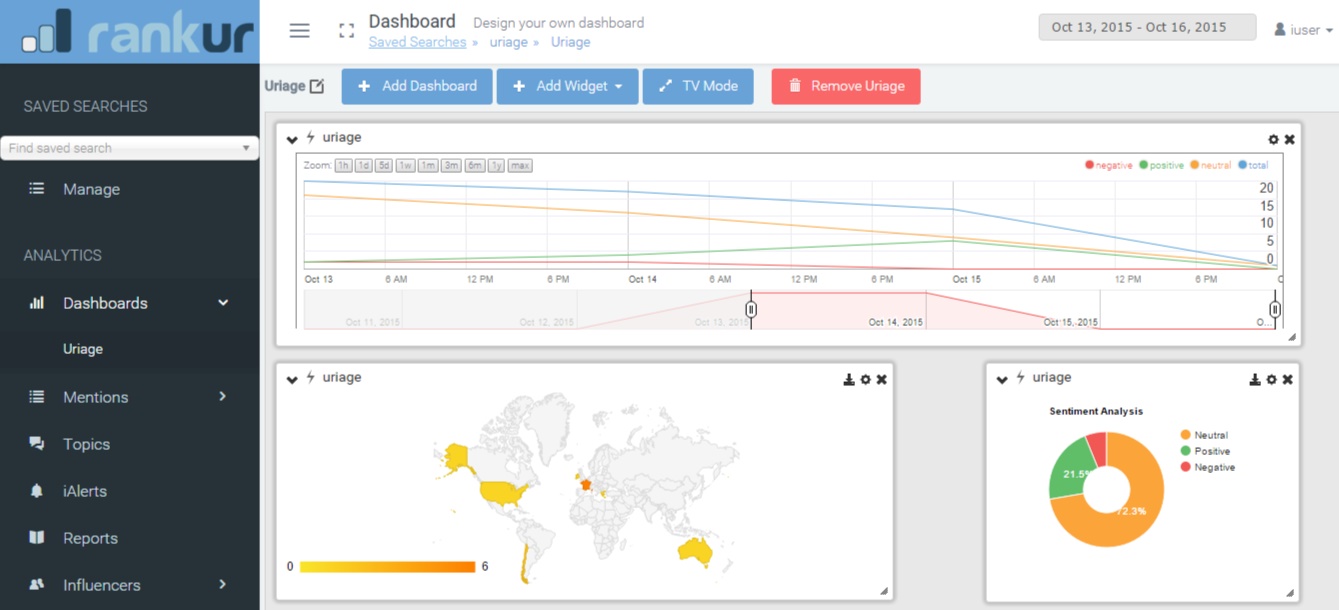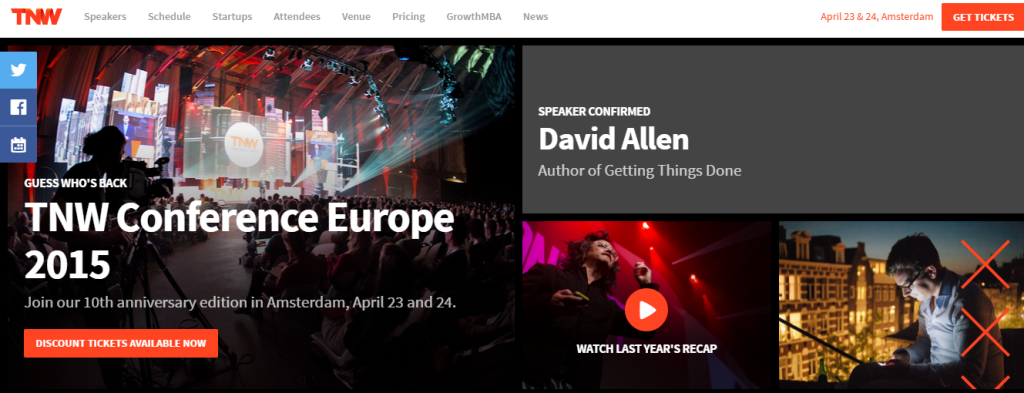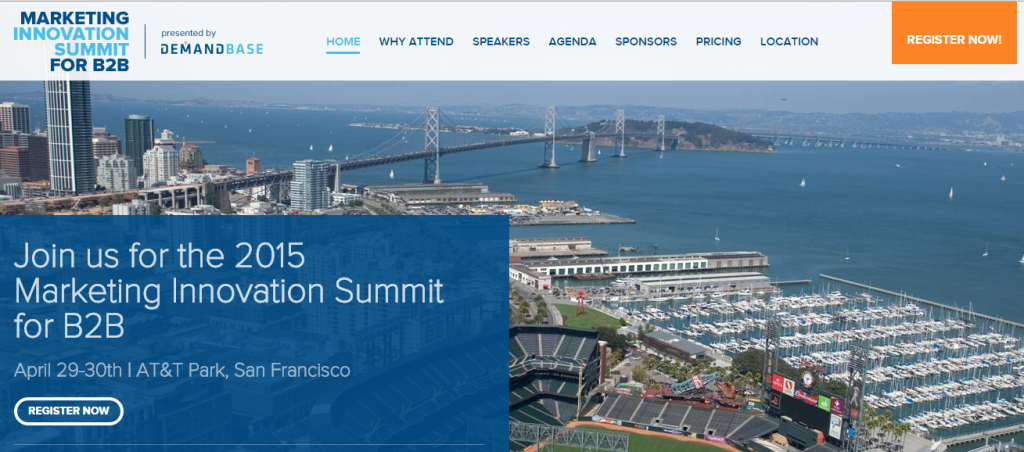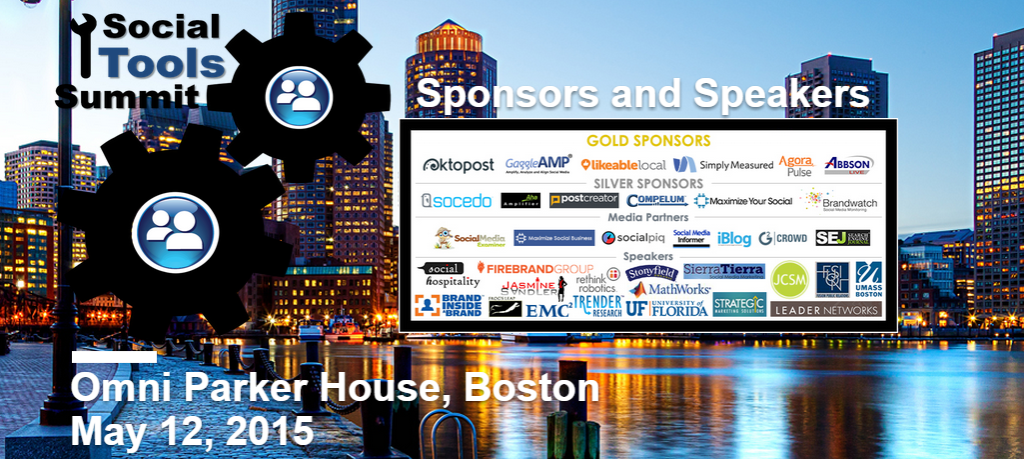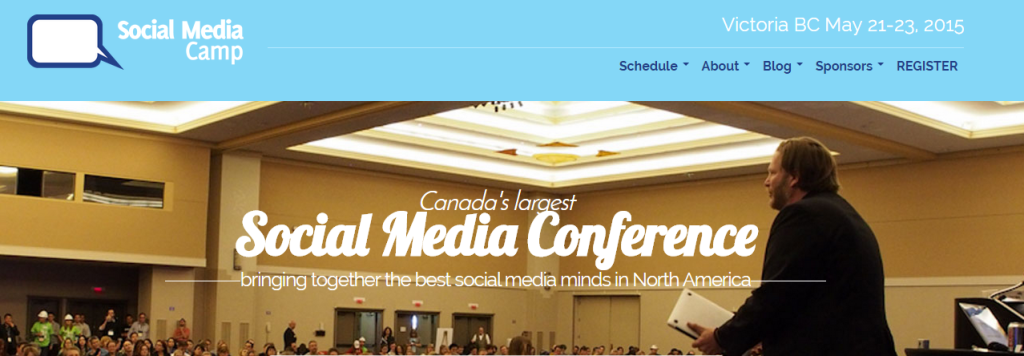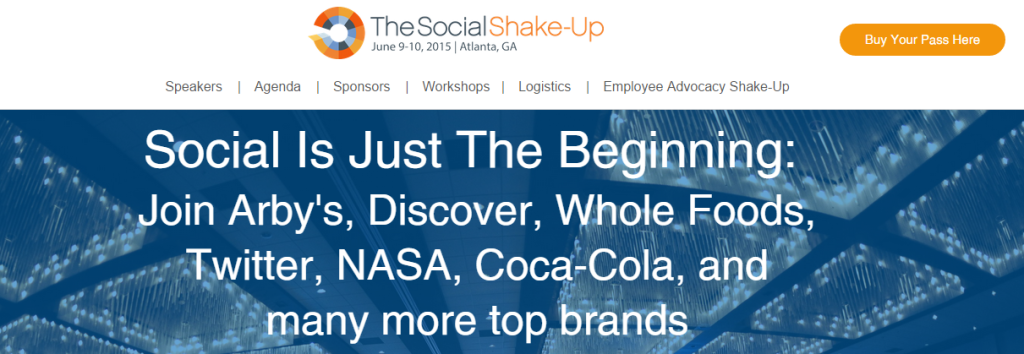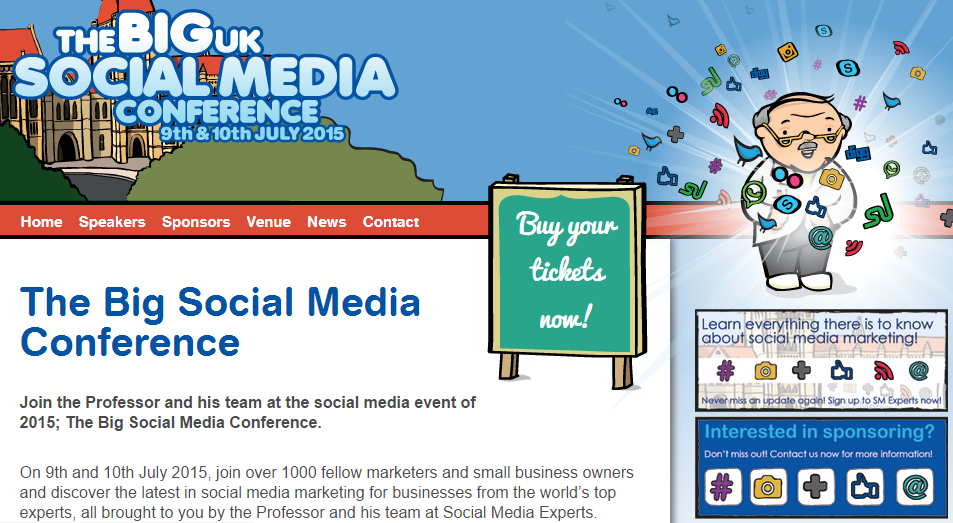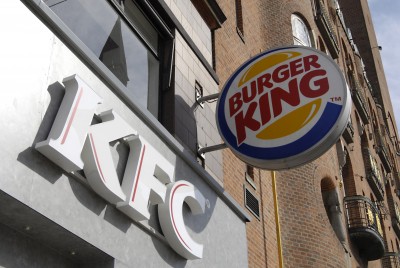Upcoming conferences for social media marketers (Part 1)
A couple of great social media conferences are coming soon – check them out!
The Next Web Europe will cover various topics on the latest web trends. More than 3500 people will take part in TNW. Among the speakers of the conference will be Pieter van der Does, Werner Vogels, Neelie Kroes and David Allen. The schedule is still in a progress of crafting. There will be 4 stages – red, blue, green and yellow, so you can choose to register according to your business interests. Special attention will be paid on early-stage startups with ten Boost Sessions for two days (check the green stage).
The conference is focused on B2B marketing – concepts, analytics, strategies, best practices in the field, successful brands. In addition, it will take place at a baseball stadium for much more inspiration and fun. One of the most important advantages of the conference is the opportunity to network with B2B marketers in the industry. There is a list of the companies which will attend this year’s Summit. Speakers will be Adam Blitzer, Megan Heuer, Michael McLaren, Heather Zynczak, Holly Bounds and others.
The main focus of the Summit is how to increase the ROI of social media through implementation of various business tools. There will be a Trender Panel (a group of users) involved in some of the sessions. The agenda includes the topics of optimization of the workflow with social media dashboards, best practices in social listening and monitoring, building a social advocacy program, social media analytics tools, content marketing and more. Some of the key speakers at the Social Tools Summit will be Neal Schaffer, Brian Mahony, Emeric Ernoult, Ron Schott, Nicole Kroese, Tanya Donnelly.
This year’s theme of the camp is “Social integration”. The attendees will learn how to create effective social media strategies which integrate all components of digital marketing. The Social media camp gives the opportunity to provide social media coaches for new participants. The schedule consists of sessions in social media trends, omni-channel marketing, brand culture, crowdfunding, social media ROI, influencer marketing and much more. Some of the main speakers will be Marc Stoiber, John Jantsch, Lisa Larter, Hussein Alibhai, Nicole van Zanten, John Yap.
The Social Shake-Up Conference provides a variety of sessions and case studies. There are 5 tracks – Data & Analytics, Conversation, Creativity, Challenges and Collaboration, as each of them consists of particular sessions. Attendees can create their own schedule based on their preferences. The main topics include creative thinking in terms of customer experience, analytics for engaging mobile users, real-time marketing, social media management, social generation, crisis management, content marketing, best brands on social and much more. Among the key speakers will be Daina Middleton, John Yembrick, Doug Busk, Tracy Bell, Robert Cancalosi.
The conference is focused on creating a successful social strategy. The agenda covers the following workshops: B2B social business tools, CRM, Blogging, global content marketing, social media strategies for financial services (all day). Speakers will be Adam Miller, Kevin Dando, Mindy Stockfield, Amar Ravi, Soniya Monga, Buddy Teaster, Ryan Lewis and others.
The key themes at The Big Social Media Conference are connected with boosting sales with social media, omni-channel marketing, marketing automation, mailing lists, and social media strategies. The list of speakers includes Mari Smith, Melonie Dodaro, Lilach Bullock, Yossi Erdman, Sharon Flaherty and others.
MozCon is about SEO, community building, brand development, CRO, content marketing, analytics and much more – all presented in a non-traditional way. Some of the speakers will be Adam Singer, Cindy Krum, Courtney Seiter, Dana DiTomaso and David Mihm. The agenda should be published soon.
Stay tuned for Part 2!
The new Twitter Small Business Planner app
Twitter launched a free mobile app (for both, iOS and Android) able to help small businesses better plan their marketing activities and efforts on the famous social network. The app follows the recent redesign of Twitter’s business website where the previous look was kept for 18 months.
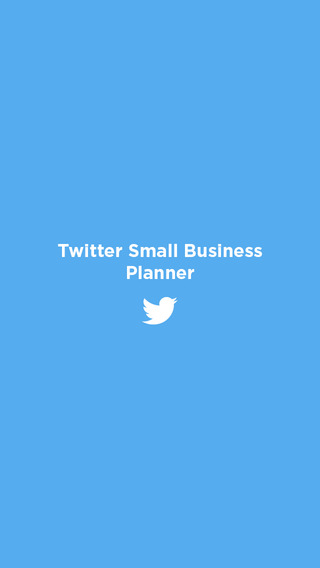

By using the new app, marketers have the possibility to browse a calendar that’s divided in four important topics:
- Twitter Ads strategies,
- info on Twitter tools,
- Tweet suggestions,
- exclusive events.
To help monitor Twitter alongside other marketing activities, the mobile app allows marketers to add relevant topics to their agenda, an activity synced with personal device calendars.
The application gives marketers access to additional resources such as research, e-books, blog posts and success stories. With the app in your hands you’ll be the first to know about upcoming #SmallGoesBig initiatives from @TwitterSmallBiz team.
The recently launched app also features access to an in-app social network that provides marketers with access to updates from Twitter’s SMB team and with the chance to communicate with other marketers using the app.
The application can be found at App Store or Google Play and do not forget to add Rankur as your monitoring and analytics platform for Twitter.
Online Reputation: The Paradox of Publicity
Unfortunately, the old adage ‘if you haven’t got something nice to say, then don’t say anything at all’ definitely does not apply to the internet. Today, we live in a world where anyone with access to the internet can say anything they want – be that a glowing endorsement of your employee going the extra mile to please a customer, or a scathing attack after missing a delivery time.
The need to protect your online reputation has once again become the center of attention after the US fast food giant Burger King had its Twitter account hacked. In the latest Whopper story (sorry, I couldn’t help myself) from the world of Twitter, the red, yellow, and blue of Burger King was replaced by the Golden Arches. Claims of ‘We just got sold to McDonalds!’ proved unfounded and, fortunately for Burger King, they seem to have emerged from the whole fiasco in a positive light.
Who would have thought being hacked would actually prove beneficial? Not many I’m sure – but that seems to be what has happened; Burger King has gained the kind of attention some advertising teams could only dream of. After all, tens of thousands of new Twitter followers in two days is hardly a disaster, nor is the worldwide news coverage that the story has created.
That said, Burger King were remarkably lucky. Contrary to popular belief, it would appear that people do in fact still have some sense of humor and took the tweets (which, let’s put it this way, I wouldn’t want my Grandma to read) as the outlandish attention grabbers they were always intended to be.
This inherent vulnerability of social media – in the sense that not only does it offer a way for consumers to get closer to the brand(s) that they love, but also has the power to alienate that very same fan base by something as simple as a badly worded tweet – highlights the need for online reputation management.
In this day and age, the brand is all-powerful. The likes of McDonalds, Coca-Cola, Apple, etc. have become so synonymous with everyday life that it’s almost impossible to go a day without seeing a billboard or television advert trying to sell you their latest product. Is it any wonder that major corporations spend millions on advertising campaigns? Not really, when they know a bad campaign could see them lose ground to competitors while a good one could bring in new consumers and lead to big profits. Given cases like Burger King’s, however, we are once again reminded that not all negative publicity is always bad, somewhat confirming the saying that any publicity is generally good publicity.
Marketing Today: The New Challenge in the Digital Age
Slowly, but surely, the business world is changing. The antiquated world of product design is being replaced by that of service design – and it shows no sign of stopping. The information age that we were promised in so many childhood cartoons looks like it could finally be coming true (although I wouldn’t get your hopes up for a Jetson-esque utopian lifestyle just yet!)
Since the days of Arkwright and Watt, mankind has come a long way. We’ve developed planes, trains, and automobiles (minus John Candy and Steve Martin, obviously). We’ve developed the telephone, the computer and the atomic bomb. These things, however, are being consigned to the annuls of history for one reason – the days of the tangible product are numbered.
The concept of ‘experience’ has become the key. What should the customer experience be like? Could we improve it? It is this focus on people rather than the product that is most intriguing. While you can easily measure something tangible – it is easy to count the number of laptops in a warehouse, for example – it is, however, much more difficult to measure emotions and feelings, especially the emotions and feelings of something as unpredictable as man.
The last three decades have seen a clear shift from the tangible to the intangible. Although it is true that the economies of western industrial nations are still 60-70% product focused, it is, likewise, true that almost exclusively new business start-ups are service based. Businesses are more concerned than ever with their online reputation – and rightly so. The blogosphere, alongside social media in general, has the power to make or break a company. One bad review that goes viral and your start-up that you have worked so hard to create is ruined before it has even begun! The answer? The beauty of online reputation monitoring and management.

